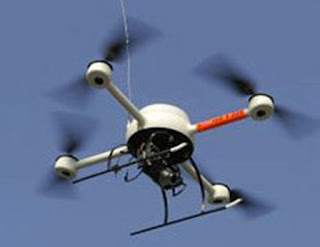Privacy will become a considerable social, ethical and legal concern as UAVs make their way into the civilian world. These issues have already been raised in response to Google’s use of an unmanned surveillance quadcopter. According to Clay Dillow (2010), Google’s “interest in such a drone is most likely its ability to supplement its Google Earth service, which currently relies on aerial and satellite photos to overlay Google Maps with actual bird's eye images of the earth” (p. 1). However, their use of an aerial surveillance drone could spark the interest of “privacy advocates and could raise legal concerns in some countries” (Dillow, 2010, p. 1). According to Dillow (2010), “UK aircraft regulations have already been amended to reflect the new and growing role of surveillance drones in society” and the “FAA is currently considering how the U.S. might integrate commercial drones into American skies” (p.1). The implementation of UAVs into the commercial arena will obviously have a significant effect on law involving personal rights, as well as on the entire culture of society. Sometime in the future “privacy rights, aviation law, and commercial interests are going to collide” and the “ensuing reactions of citizens and state could mark the preliminary steps in defining which direction our drone culture is heading” (Dillow, 2010, p. 1).
Another primarily ethical and legal issue of UAVs involves civilian casualties. The Law of Armed Conflict exists to prevent needless suffering without impeding the effective waging of war (Dilanian, 2011, p.9). This especially applies to innocent bystanders, which can be an issue when missiles are fired from UAVs. In the past, officials have been hesitant to use UAVs in “urban areas” where high-level militants sometimes take refuge because it would “greatly increase the risk of civilian casualties” (Hosenball, 2009, p. 1). This also raises the issue of “unclear responsibility” in the instance that “improper conduct and unauthorized harms” do occur (Lin, Bekey, Abney, 2008, p. 73).
Finally, would the advantage provided by UAVs “lower the barrier for war” and “make it easier for one nation to engage in war or adopt aggressive foreign policies” (Lin, Bekey, Abney, 2008, p. 75)? With fewer casualties anticipated because of unmanned options, this seems like a valid possibility. It is also possible that the “asymmetry” of such a war could provoke desperate retaliation that could “radically change” a society (Lin, Bekey, Abney, 2008, p. 81).

No comments:
Post a Comment
Please add to advantages and disadvantages of technology. Also, please share your experience with the technology.